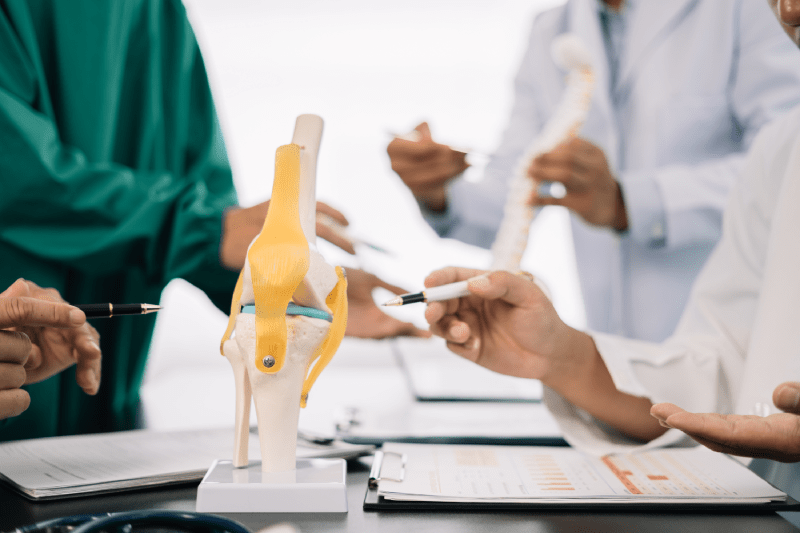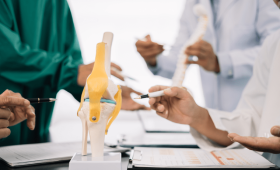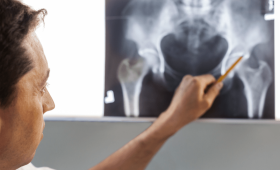When Can I Start Walking Normally After the Surgery?
After hip replacement surgery, you can start walking very shortly under the guidance of your doctor and physical therapist. Generally, you will be asked to get up with the help of a walker or crutches and take a few steps within the first 24 hours after the surgery. Walking with these aids for the first few weeks will help you get used to the new prosthesis and strengthen your muscles. The transition to normal, unassisted walking can vary from 6 weeks to 3 months, depending on the patient’s overall health and the complexity of the surgery.
When Can I Travel by Car After the Surgery?
It is generally recommended to wait 4 to 6 weeks before you start driving a car after hip replacement surgery. During this period, it is important that you have regained full control of your operated leg and that your reflexes for situations like sudden braking have returned to normal. As a patient, traveling for hospital transfers is usually possible a few days after the surgery. However, long car trips are not recommended.
How Soon Can I Fly After the Surgery?
You must get approval from your doctor for air travel. Generally, traveling within the first 4 to 6 weeks after the surgery can be risky, as there is an increased risk of deep vein thrombosis (DVT). Your doctor will determine the necessary precautions (compression stockings, regular movement) for travel. Short flights are usually safe earlier, while long-haul flights become safe at a later date. After 3 months, there is no longer an obstacle to flying.
What Affects the Cost of the Surgery?
The cost of hip replacement surgery in Turkey is influenced by many factors. The main ones are the experience of the surgeon and their team, the quality and technological equipment of the hospital where the operation will be performed, and the type and brand of the prosthesis to be used. As the reputation of the hospital and the surgeon increases, so can the costs. Additionally, depending on the patient’s general health and the complexity of the surgery, additional tests or treatments may be required.
What is the Level of Experience of Orthopedic Surgeons in Turkey?
Turkey is a leading country in health tourism and has highly experienced orthopedic surgeons in the field of hip replacement surgery. Many Turkish surgeons have received international training and have worked in world-renowned hospitals. In addition, they continuously increase their experience by performing a high number of surgeries due to the patient population in Turkey. This increases patient safety and the success of the operation.
What Is Included in the Surgery Price?
Hospitals in Turkey generally offer “all-inclusive” packages for international patients. These packages may include the surgery fee, the hospital stay (usually 3-5 days), anesthesia, all necessary pre- and post-operative tests, medications, consumables, and physiotherapy sessions. Some packages also offer additional services such as airport transfers and accommodation. These packages prevent patients from encountering unexpected additional costs.
Who is the Most Suitable Candidate for the Surgery?
The most suitable candidates for hip replacement surgery are patients who suffer from chronic and severe hip pain, whose daily activities are limited by this pain, and who have not benefited from other treatment methods (medication, physical therapy). The most common causes include osteoarthritis, rheumatoid arthritis, and hip joint fractures. It is important that the candidate’s general health is at a level that can withstand the surgery.
What Is the Level of Pain After the Surgery?
Post-operative pain can be intense, especially in the first few days. However, this pain can be effectively controlled with modern painkillers. Your pain will be regularly monitored during your hospital stay. Generally, the pain significantly decreases within a few weeks, and the pain caused by the hip prosthesis disappears completely in the long term.
What Tests Are Performed Before the Surgery?
Before hip replacement surgery, a series of tests are performed to evaluate your general health. These tests include blood tests, urine tests, a chest X-ray, an electrocardiogram (ECG), and imaging tests such as X-ray or MRI (magnetic resonance) to get detailed images of the hip joint. These tests are vital to ensure the surgery is performed safely.
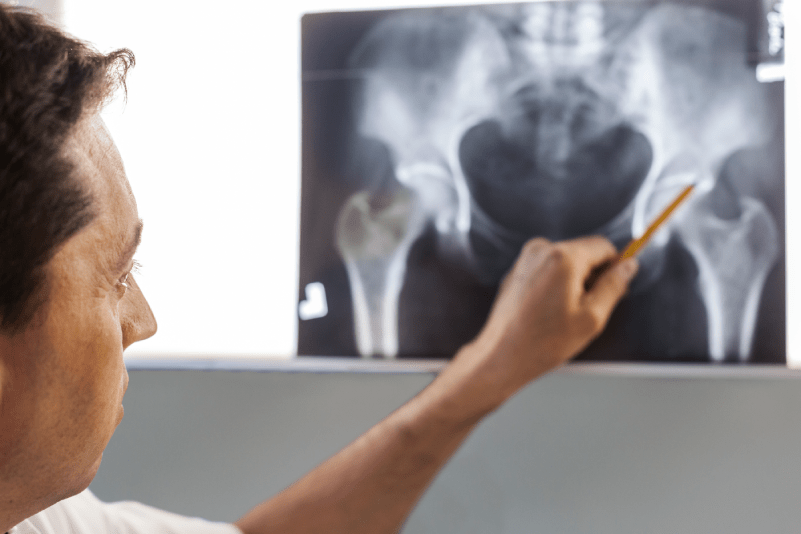
How Long Until I Can Return to a Normal Life?
The process of returning to a normal life after hip replacement surgery varies from person to person, but full recovery is generally expected to take between 3 and 6 months. While the first few weeks focus on basic movements, more complex and challenging activities are transitioned to in the following months. A complete return to a normal lifestyle is possible with regular physical therapy and adherence to your doctor’s instructions.
What is the Success Rate of the Surgery?
Hip replacement surgery is considered one of the most successful surgical operations in modern medicine. With the right patient selection and an experienced surgeon, the success rate is over 95%. The surgery allows patients to get rid of their pain, increase their mobility, and significantly improve their quality of life.
Why is Physical Therapy Important After the Surgery?
Physical therapy is the most critical part of the recovery process after hip replacement surgery. Your physical therapist will determine specific exercises to increase the range of motion of the new hip joint, strengthen the surrounding muscles, and re-learn the correct walking pattern. Regular physical therapy sessions directly affect the success of the surgery and extend the life of the prosthesis.
When Can I Take a Bath or Shower After the Surgery?
It is recommended to avoid showering for the first few days after the surgery. Generally, you can take a shower with your doctor’s approval after the surgical incision has completely closed (approximately 10-14 days later). However, taking a bath, which means getting into the tub, is not recommended for the first 6 weeks or longer as it can increase the risk of infection. It is important to keep the wound area dry and clean.
When Can I Return to Work After the Surgery?
The duration of your return to work depends on the type of work you do. If you work in an office job, you can return to work within 2 to 4 weeks after the surgery. If you work in a physically demanding job, you may need to wait until the full recovery process (3-6 months) is complete. Your surgeon will guide you on when you can safely return to your job.
How Long Do I Need to Stay in the Hospital?
The duration of a hospital stay after hip replacement surgery is usually 3 to 5 days. This period may vary depending on the complexity of the surgery and the patient’s general health. During your hospital stay, your pain will be managed, your first walking attempts will be made, and you will be educated on basic movements.
Are There Risks of Complications After the Surgery?
As with any surgical operation, hip replacement surgery has some risks. These risks include infection, blood clot formation (deep vein thrombosis), nerve damage, or the prosthesis dislocating or loosening. However, with modern surgical techniques and the precautions taken by hospitals, these risks are quite low.
What is the Lifespan of the Implant?
Hip prostheses have become increasingly durable with the development of technology. The lifespan of modern prostheses used today is generally 15-20 years or more. The life of the prosthesis can vary depending on the patient’s age, activity level, and the quality of the prosthesis material. To ensure a long-lasting prosthesis, it is very important to follow the surgeon’s advice.
What Exercises Can Be Done After the Surgery?
In the first few weeks after the surgery, you will start with light exercises such as knee and ankle movements. Under the guidance of your physical therapist, you will gradually move on to exercises that strengthen the hip muscles. Low-impact sports such as swimming and cycling can be started within 3-6 months after the surgery. High-impact sports like tennis are not recommended for a lifetime.
When Can I Use Stairs After the Surgery?
Learning to use stairs after the surgery is usually done with your physical therapist before you are discharged from the hospital. Initially, you will use a crutch or hold on to the railing, moving one step at a time. Generally, you can start using stairs more comfortably within the first 2 weeks. Climbing stairs completely safely and without assistance can take a few months.
What Documents Are Required for Surgery in Turkey?
To have hip replacement surgery in Turkey, you generally need documents such as a valid passport, reports showing your medical history, and test results. The visa situation may vary depending on your country of origin. Before your trip, the hospital or intermediary agency where the surgery will be performed will provide you with detailed information about all the necessary documents.
What Sports Can I Return to After the Surgery?
After hip replacement surgery, low-impact sports such as swimming, walking, cycling, and golf are recommended. High-impact sports like football, basketball, and running, which put a lot of stress on the joints, are not recommended as they can shorten the life of the prosthesis. You should talk to your doctor about returning to your old sports habits after the surgery.
How is the Prosthesis Selected?
Prosthesis selection is based on the patient’s age, bone quality, lifestyle, and the surgeon’s preference. Prostheses are usually made of materials such as metal, ceramic, or polyethylene. More durable ceramic or metal prostheses may be preferred for young and active patients, while different materials may be chosen for older patients. Your doctor will determine the most suitable prosthesis for you.
How is Anesthesia Applied During the Surgery?
Hip replacement surgery is generally performed under general anesthesia, which means the patient is completely put to sleep. In some cases, spinal (from the spinal cord) anesthesia may be preferred. With this type of anesthesia, the patient remains awake, but the area from the waist down is numbed. Which anesthesia method will be used is determined by the patient’s health status and the surgeon’s decision.
When Can I Resume Sexual Activity After the Surgery?
The process of returning to sexual activity varies from person to person, but it is generally possible 4 to 6 weeks after the surgery. The important thing is that your pain has decreased and you choose positions that do not strain your new prosthesis. Your doctor will give you specific advice on this matter.
How Can I Increase the Success of the Surgery?
The most important steps to increase the success of the surgery are to strictly follow all the instructions of your doctor and physical therapist. Regular exercise, a healthy diet, avoiding smoking and alcohol, and controlling your weight also speed up the recovery process and extend the life of the prosthesis.
How is Wound Care Done After the Surgery?
Post-operative wound care is vital to prevent infection. Your wound will be covered with a sterile dressing while you are in the hospital. After you are discharged, you must also be careful to keep the wound dry and clean. You should change the dressings according to your doctor’s instructions and prevent the wound from getting wet until the stitches are removed.
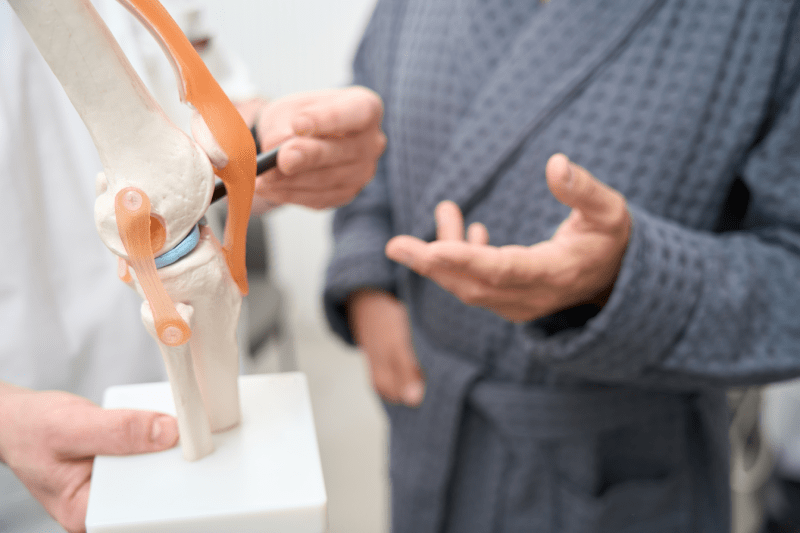
What is the Pre-operative Preparation Process Like?
The pre-operative preparation process ensures that the patient is best prepared for the surgery. During this process, you will receive information from your doctor and nurses about what you need to pay attention to after the surgery. Stopping the use of blood thinners, quitting smoking and alcohol, and controlling any additional diseases are important steps in this process.
When Can I Walk Again After the Surgery?
Getting up and walking after the surgery is one of the first and most important steps of the recovery process. Most patients start walking with a walker or crutches with the help of a physical therapist on the day after the surgery. This early mobility increases blood circulation, reduces the risk of clots, and helps the muscles to work again.
What is the Legal Status of Health Tourism in Turkey?
Health tourism in Turkey is strictly regulated by legal regulations by the Ministry of Health. Foreign patients who come to Turkey for aesthetic or medical operations are under legal protection. Hospitals with international accreditations and expert surgeons offer a safe and high-quality service to patients.
What Should I Pay Attention to After the Surgery?
The most important rules to pay attention to after hip replacement surgery include avoiding crossing your legs too much and not bending the hip joint more than 90 degrees. You should stay away from high or low seating areas and use auxiliary equipment when getting up and sitting down. Your doctor will give you all the necessary instructions to protect your prosthesis.
Will I Need a Helper at Home After the Surgery?
Having someone to help you at home for the first few weeks after the surgery will facilitate the recovery process. Daily tasks such as preparing meals, shopping, and cleaning can be difficult at first. You can gain independence more quickly by organizing your home environment (by adding handrails to the stairs and in the shower).
What Should My Sleeping Position Be After the Surgery?
Your sleeping position after the surgery should be determined according to your doctor’s advice. Generally, it is recommended to lie on your back and place a pillow between your legs for the first few months. This position helps prevent the prosthesis from dislocating. It is usually not advisable to lie on the operated side for the first few months.
What is My Chance of Having Hip Problems Again?
The chance of having hip problems again after hip replacement surgery is low. However, the prosthesis may wear out over time, or some complications (such as loosening) may occur. For this reason, it is important to go for regular doctor check-ups, maintain a healthy lifestyle, and follow sports rules.
What are the Additional Services for Patients from Abroad?
Clinics in Turkey offer various additional services to facilitate the treatment process for patients from abroad. These may include airport transfers, accommodation arrangements, interpreting services, visa consultancy, and follow-up on post-operative check-ups. These services ensure that patients feel safe and comfortable.
How Do I Choose the Right Hospital for the Surgery?
Choosing the right hospital is critically important for the success of the surgery. You should research whether the hospital has international accreditations (e.g., JCI), the experience and references of the surgeon and their team in hip replacement surgery, the technological equipment used, and the hospital’s hygiene standards. It can also be beneficial to get support from a reliable health tourism consultant.
